- Home
- Taylor Caldwell
Your Sins and Mine Page 2
Your Sins and Mine Read online
Page 2
Then, abruptly, he was silent. He had taken hold of a gnarled apple branch and he was looking at it intently. I joined him, for he had become rigid and his usually highly colored face had grayed. Speechlessly, he moved the branch towards me. There were no buds on it. My father moved to the next tree and the next, and I trailed him, our shadows following us on the brown earth. There were no buds at all on any of the apple trees. I broke a twig, and the wood was green. I did not know how constricted my throat had become until I tried to speak. I had to swallow a few times before I could say, “Well, it’s been a dry winter, but the trees are alive, and so—”
“And so,” said my father, and his voice trembled. He went on and all at once it seemed to me there was a queer emptiness in the cold February light. Perhaps it was my father’s face, so barren of expression except for his eyes, which had a bitter grimness in them, as if he knew something I did not.
Again we were silent, as we went to the cherry orchard. We examined tree after tree, not speaking. We went to the peach orchard, and to the pear. There was not a single flower bud on any tree, and time after time I broke twigs to see the living green in them.
We stood and looked at each other. My father said, “You remember that we lost all our female calves this year, and only a few of the young bulls lived.”
“Yes,” I said. “And it’s happened to all our neighbors. There are practically no milch cows in this whole area.”
“Our hens are laying only a few eggs, and none of them has been fertilized.” My father turned to me and stared at me long and somberly. “Do you think this is just local? It’s been reported all over the country. ‘Dryness.’”
“What do you say, Dad?” I asked.
But he only shook his head and gazed at the sky.
We went to the winter wheat, but as we approached it we saw it had lost much of its greenness, and when we stood among it we could see that it was dying.
When we returned to the house I was shivering. My father went to the telephone and called the Grange office in Arbourville. He spoke very little, and asked a few questions. Then he hung up and turned to me. “Yes, it’s all over the state. None of the fruit trees are showing buds, and there are reports of wheat dying from the Pacific to the Atlantic. The Florida crop was almost nothing. There isn’t enough wheat or lettuce or any other kind of vegetable to ship, and though they’ve gathered a good harvest of oranges the trees aren’t showing any flowers.”
“We’ll have to irrigate,” I said. We stood in the hall, and suddenly I had to sit down on one of the chairs lined against the wall. I remembered the reports of the sinking rivers, and I also remembered that our well’s level was dropping and the pump was working almost constantly.
“We’ve never had to irrigate,” my father said, and his voice had lost its strength. “We’ve always had enough rainfall. We’re not prepared to irrigate, and neither are our neighbors.” He added, as if to himself, “It would do no good, anyway.”
“Why not?” I asked helplessly.
But my father did not answer. I noticed that he was staring strangely at the clock, but as he had not told us yet what he had seen—or dreamed—I could not understand that strange look.
He went out of the house again and I followed like a child. We found Edward in the barn tinkering with the engine of one of the plows. He heard us come in and lifted his head alertly. My father went to him and put his hand on my brother’s shoulder. “You’re being avenged, Ed,” he said. “The whole world forgot you, but God has remembered.”
CHAPTER THREE
The newspapers, even the country weeklies, seemed to ignore the farmers. The farm journals, too, were curiously silent. Now we know that Washington had directed them not to print the things that were happening. A panic was feared, not so much in the country as in the cities. Perhaps Washington was right. Cities panic easily.
Washington was silent. Congress met and discussed the possible amounts of atomic and hydrogen bombs which Russia was producing. They talked of allies and human rights and investigations into the drug traffic and the future of the United Nations. They talked of everything except what was uppermost in their minds.
And all the time the earth stood barren, except for the fruitless trees, and the ground dried and blew in brown storms over the land. There was not a word from the other capitals of the world, and not a word, as yet, from Russia. There was just one significant trend which millions of readers passed over in their newspapers: belligerence was beginning to disappear from among the delegates to the United Nations, and talk was abstract and muted. Even the mention of new land and sea bases for the Western allies aroused not a single angry comment from the Russians. In fact, they made no comment at all.
We heard, much later, that the “bread basket” of Russia—the Ukraine—was producing no wheat, and that the endless collectivized farms were as hard-packed and fruitless as ours were. Everywhere in the world the land refused to bear fruit. But for now a conspiracy of silence hung over the world.
And the sun shone, cloudless, in the sky, and the rivers dropped and the seas shrank and the creeks and brooks dried up and the mountains were sear and the valleys yellowed—all over the world.
The land hated us, the violated land, the faithful land, the exploited and gentle land. The land had decided that we must die, and all innocent living things with us. The land had cursed us. Our wars and our hatred—these had finally sickened the wise earth.
We did not know then that we stood indicted as the enemy of life.…
It was the end of February, and in our part of the country the weather was as fair and gentle as May. We awoke every morning to calm and relentless sunshine. The trees brightened daily into thickening green, and even the fruit trees, though never showing a single flower, sprang into leaf. But the corn did not sprout; the meadows lay in hot brownness under the polished sky, giving birth only to prickly weeds inedible for man and beast. Some weeds which had disappeared years ago under constant cultivation had unaccountably returned and were definitely poisonous, so that we kept our large flocks out of the fields. We did not allow them even to go to the water holes, for they had long since dried. They had been sucked into the earth, as if suddenly gulped down by some subterranean giant.
We had considerable hay stored in our barns, and feed in the silos; we fed the cattle as we fed them during the winter. But for some reason the cattle did not thrive. They were restless in the sunshine, and complained, and their flesh dwindled. The few calves we had had in the winter sickened and died. The cow’s milk diminished until we had only enough for ourselves, a thin, bluish fluid which produced almost no butter.
“Well,” said my father, with that grim humor which was now almost a permanent characteristic of his, “the Government will have to disgorge those millions of pounds of butter they’ve been buying from the farmers and put it on the market. I’ve noticed the grocery stores are having sales on it, at low prices, too. Keeping the cities quiet, I suppose.”
The Government not only disgorged its butter but began to disgorge the bursting warehouses of the wheat it had bought from the farmers. But we did not know that for some time. Nor did we know that all exports of wheat had been halted. We learned nothing in the newspapers of the millions dying of famine in India and Asia.
My brother Edward said nothing. He worked on the farm machinery, though he knew his work was useless. His hands slowed and a strange stillness lay on his face. Perhaps it was because our children, fed with that thin, bluish milk, gained little weight and cried almost constantly. At night I would lie beside my wife, Jean, and listen hopelessly. And Jean, who had always been bright and full of laughter, would weep soundlessly, believing me asleep. The moonlight would make a clear black pool of her hair on the pillow, and I would want to touch it. But if I did she would know I was frightened and then it would be worse for her.
The Grange did not call any extra meetings in Arbourville to discuss what was happening. We know now that they had received their orders,
as all the Granges had received them, from Washington. But on the first of March they called their regular meeting, and my father and I attended with the other farmers in the area.
I was horrified when I saw Lester Hartwick, our local president. I had seen him last in January, a happy, jocose farmer, as colorful as a ripe pear, as short and bulky as a boulder. He had become an old man in two months, shriveled and wasted, his flesh as gray as his thick hair. He opened the meeting as matter-of-factly as usual and shuffled papers on the table. Then he looked up at us and his gaze was absent and clouded.
“Well, fellows,” he said, “we’ve been having bad luck this spring with our crops. Not having had—much—rain and such. But it’s still only March, and we can expect rain any day.” He faltered, stopped, and bent his head over the table.
Then my father stood up.
“Les,” he said, “you know damn well we aren’t going to have any rain. And don’t tell me it’s just in this area. It’s all over the world, and you know it.”
“Now, George,” said Lester, but he shifted his eyes. “How can you know that? Oh, sure, there’s a drought in Texas, but they’ve been having droughts for years—”
“I know the newspapers aren’t printing anything,” said my father, “and neither are the farm journals. But I know what’s happening all over the world. How do I know?” He pointed at his chest. “Something tells me, in here. Who’s been warning you Grange presidents to keep quiet?”
Lester laughed; it was a feeble sound. “George, you sound like a prophet of doom. You know as well as I do that some years the crops are light, but the next year—”
“There probably won’t be a next year for most of us,” said my father. The farmers were looking steadily at him now, and not at Lester Hartwick. “We’ve got just one court of appeals now,” my father said, “and I don’t suppose most of you have given it any thought. Oh, I suppose you’ve prayed for rain, in church. But have you ever prayed: ‘God have mercy on me, a sinner,’ like the publican in the Bible? I guess you haven’t; your faces are the answer. I wonder how many of you even know your Bible? I wonder how many of you know we’re all being punished, and that we’ve had a sentence of death handed to us?”
At first some of the men in the room smiled uneasily at my father’s words, but soon the smiles faded and they gave him all their attention. He was big and powerful as he stood there, with his grave and somber face illuminated by the spring sunlight.
“Yes, a sentence of death,” he said, with authority. “Because every man in the world is a sinner against every other man, and against God. It isn’t only all the wars we’ve had in this century. We’ve forgotten God.”
My father tightened his belt and ran his hand over the stubble on his chin. His blue eyes were vivid—vivid and condemning—as they traveled slowly over every face in the room.
“I’m no politician. I’m a farmer, just as you are. When we were little fellows we took it seriously when the parsons told us we owed a duty to our fellow man, and that the things, of the spirit are more important than the things of the body. Every church told its people that; every church still does, though mostly the parsons speak to empty rows. We don’t hear these things with our ears any more. Why? Because every one of us has come to believe that the things of the body are the only valuable things, and we’ve scrambled for them over the rights of all other men. We’ve become too materialistic, too atheistic. Look, I’m no orator. You know what I’m talking about.
“And now we shake our atomic and hydrogen bombs in Russia’s face and she shakes hers in ours, and we both go on exploding them over the land and destroying it. But war is a profitable thing. It’s what makes cities grow and thrive.”
My father’s eyes flashed over the listening faces of the men. “In my father’s day the people were happy on the land. Men raised food, not factories for the weapons of murder. Sure, maybe we didn’t all have big cars in our barns, and gadgets in our houses, but an oil lamp does just as well as electricity, and a book is better than some of the stuff we see on television.
“What has all our progress brought us? Has it brought us peace and safety and love and contentment? No. It has taught us only war. It has taught us to envy our brothers. It has taught us to want more than our brothers. That’s materialism; that’s hate. There’s no place on God’s earth for materialism and hate and godlessness and war. That’s why we’ve been sentenced to death.”
He lifted one of his big hands, slowly and solemnly. “The earth will live. She isn’t going to allow us to destroy her with our bombs. She’s just going to get rid of the monsters who might, some day very soon, send her spinning airless and fruitless through space, or blow her into dust. The earth knows God, and God is with the earth. She’s stood our antics too long; she suffered, and she was kind. Now we are going to die, for we’ve gone too far in our hate and greed.”
He raised his head and cried out, “May God have mercy on our souls!”
Like a mighty chorus to his words there answered the rolling sound of spring thunder, and all at once the sun was gone and the light in the room became gray. The farmers started to their feet, and looked at the windows.
Lester Hartwick laughed with delight and shouted, “Look, it’s going to rain at last! George, you old Jeremiah, it’s going to rain!”
And rain it did. Suddenly the windows were silvery cataracts and lightning blazed and thunder shook the air. The street outside disappeared in the torrents; through some partly opened window gushed the scent of wet dust and the freshness of life. The farmers shouted with relief and joy, and slapped my father’s back and talked deliriously about being able to set the crops now.
The rain poured down and we watched it, crowding to—the windows. The dried brooks would run now, and the rivers would rise. I looked at my father, but he was not smiling. He said: “The earth won’t die. The rain will save the fruitless trees, but it’s too late for the fruitful ones. The sentence of death is still with us.”
We heard, over the radio that night, that rain was falling all over the world in gushing floods. And for the first time we learned that the drought had been worldwide.
It rained for many days, and the farmers plowed joyously in it and sang, and set their crops, and held up their faces to the dark and pouring heavens. All over the world it rained, and the cruel sun was gone for a long time. The forests freshened and the rivers tumbled everywhere.
But the wheat did not come up, and the fruit trees, though green as jade, did not put out any flowers, and the inundated earth did not brighten with grass. It remained lifeless except for bursting acres of poisonous weeds. Vegetables did not grow, though flowers bloomed everywhere—flowers which men and beasts could not eat.
CHAPTER FOUR
When we arrived home on that first day of rain, Jean ran to me and said: “Pete, the birds have come back!”
We men had not noticed that the birds had disappeared, for we had been too desperate. But when I looked through the parlor window I saw that the brown earth was full of robins and blackbirds and other migratory creatures. They were very busy, pulling worms from the ground and shrilling in the wet twilight and hopping about with a kind of feverish activity. Somehow the very sight of them heartened me and my private terror diminished.
The water holes had reappeared, but we could not let the cattle go to them. As if some evil force had willed it, we saw that the weeds were thickening, thrusting out strange yellow and red flowers and enormous thorns. They crowded about the water holes, poisoning them. That night we led the cattle to the hurrying brook and let them drink their fill, and we stood about them with heavy sticks for fear that they would try to eat the weeds. But we did not need to keep them away. They looked at the weeds with as much fear as we did, and huddled together to avoid even stepping on them.
The rains went on. When they stopped for an hour or so there was a curious stench on the earth. It hung like a deadly fog in the air. We went out to find its source. The weeds were exuding it, and as
we came closer to them—they were pushing up over our lawns now as well as in the fields—the smell choked us and forced us to cover our noses. It was the very essence of corruption. We could see the colors of these monstrous flowers and their dark green thorny leaves as far as our eyes could reach. When, after a week or so, the long barbed tendrils reached up to our windows, waving like tentacles, Jean cried out in horror, and she and my mother and Lucy gathered the children about them, cradling them with their bodies.
Ten of our best cows died one night, after the weeds had reached the walls of our house and our barns. Half of our chickens died, without reason. Two of our horses sickened, and expired before morning. The pigs looked at their troughs and turned away. We could see the ribs on their gaunt bodies.
The newspapers mentioned casually that there had been an infestation of weeds “in this area.” (We did not know then that these weeds had appeared in every country all over the world.) “However,” said a spokesman, “plowing and vigorous cultivation will destroy them. Botanists are baffled. Samples are being rushed to Washington. But it is just in this area.”
In early April a tremendous hydrogen bomb was exploded in the Southwest. There were pictures of it in the newspapers. Washington boasted that it was the biggest bomb ever to be exploded, and the military were jubilant. They were certain Russia had no comparable bomb of her own.
The Russians were silent. The whole earth was silent. No nation permitted the news of the weeds and the deathly smell to extend beyond its borders.
Then, without warning, the President, on a radio broadcast, pleaded with the people not to travel “more than necessary.” Rubber was in “short supply” and so was gasoline.
“Lies, lies,” said my father. “Washington wants to prevent the people from seeing what is happening in other states besides their own.”

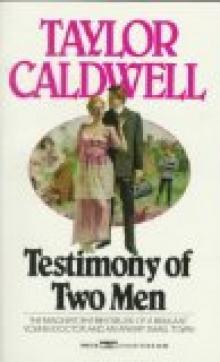 Testimony of Two Men
Testimony of Two Men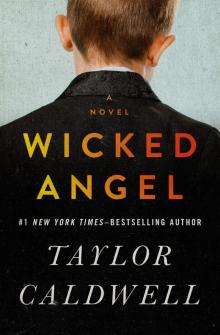 Wicked Angel
Wicked Angel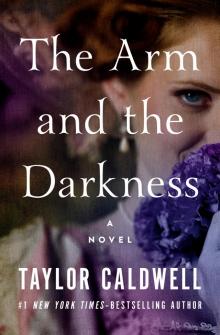 The Arm and the Darkness
The Arm and the Darkness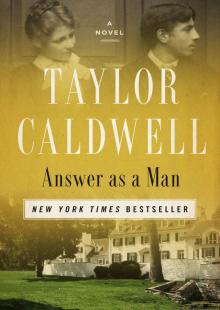 Answer as a Man
Answer as a Man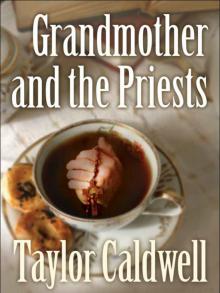 Grandmother and the Priests
Grandmother and the Priests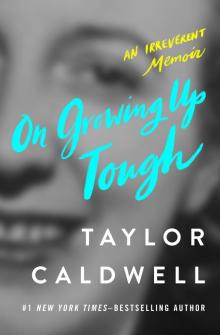 On Growing Up Tough: An Irreverent Memoir
On Growing Up Tough: An Irreverent Memoir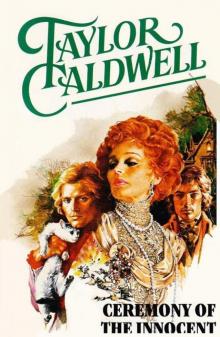 Ceremony of the Innocent
Ceremony of the Innocent The Listener
The Listener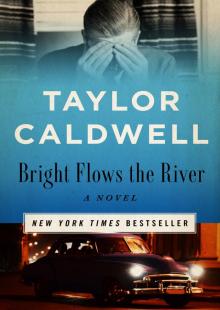 Bright Flows the River
Bright Flows the River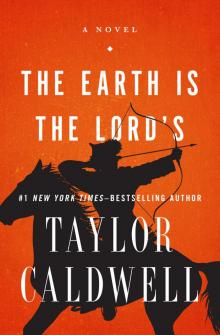 The Earth Is the Lord's
The Earth Is the Lord's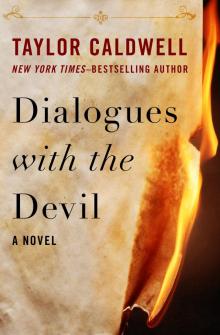 Dialogues With the Devil
Dialogues With the Devil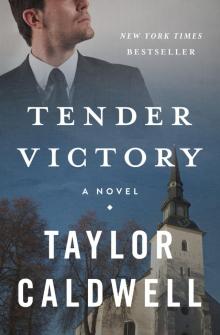 A Tender Victory
A Tender Victory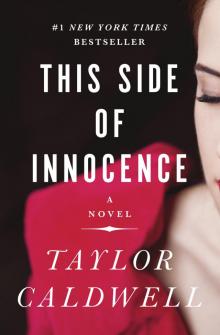 This Side of Innocence
This Side of Innocence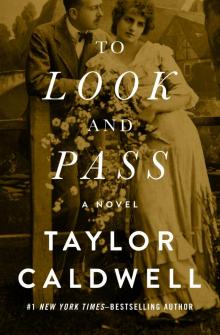 To Look and Pass
To Look and Pass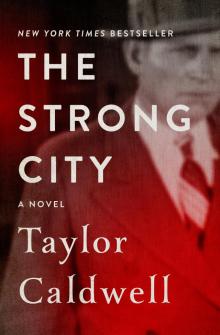 The Strong City
The Strong City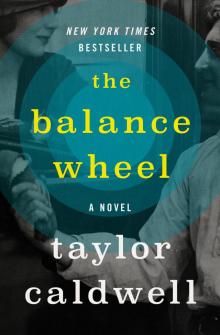 Balance Wheel
Balance Wheel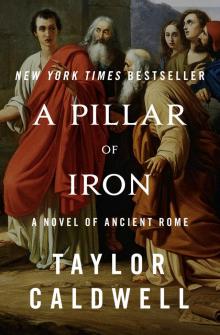 A Pillar of Iron: A Novel of Ancient Rome
A Pillar of Iron: A Novel of Ancient Rome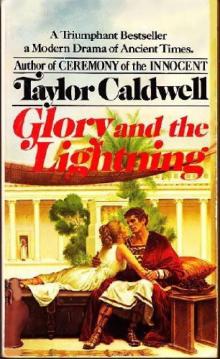 Glory and the Lightning
Glory and the Lightning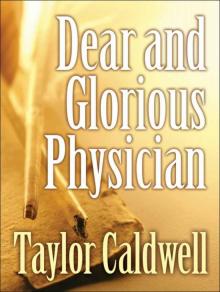 Dear and Glorious Physician
Dear and Glorious Physician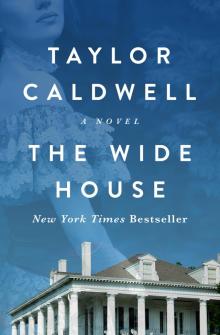 The Wide House
The Wide House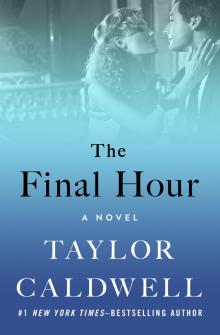 The Final Hour
The Final Hour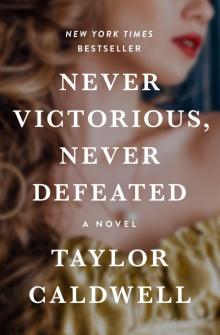 Never Victorious, Never Defeated
Never Victorious, Never Defeated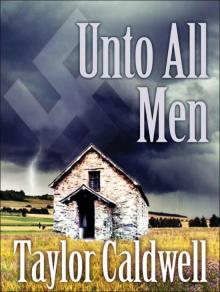 Unto All Men
Unto All Men The Turnbulls
The Turnbulls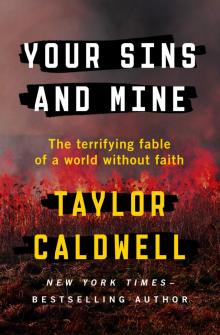 Your Sins and Mine: The Terrifying Fable of a World Without Faith
Your Sins and Mine: The Terrifying Fable of a World Without Faith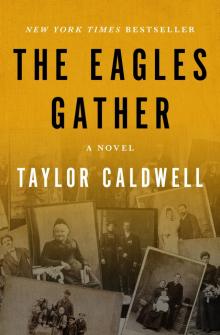 The Eagles Gather
The Eagles Gather Let Love Come Last
Let Love Come Last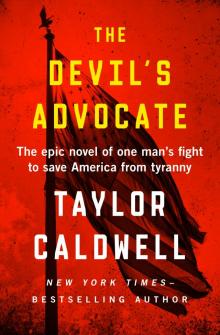 The Devil's Advocate: The Epic Novel of One Man's Fight to Save America From Tyranny
The Devil's Advocate: The Epic Novel of One Man's Fight to Save America From Tyranny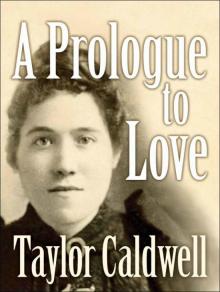 A Prologue to Love
A Prologue to Love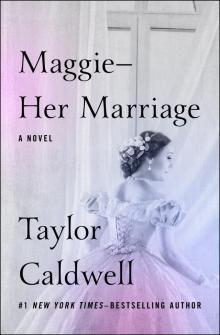 Maggie: Her Marriage
Maggie: Her Marriage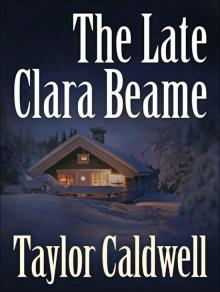 The Late Clara Beame
The Late Clara Beame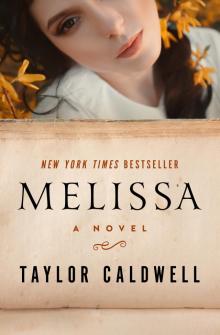 Melissa
Melissa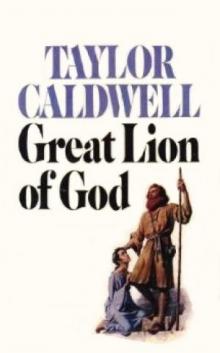 Great Lion of God
Great Lion of God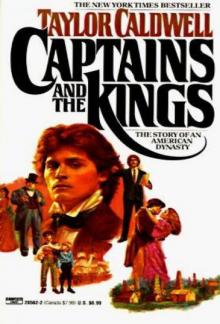 Captains and the Kings
Captains and the Kings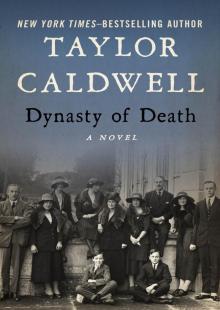 Dynasty of Death
Dynasty of Death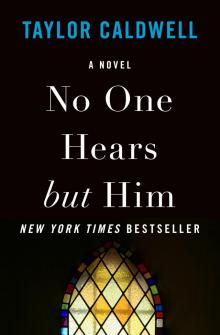 No One Hears but Him
No One Hears but Him The Sound of Thunder
The Sound of Thunder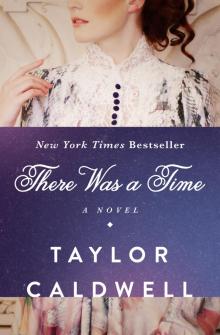 There Was a Time
There Was a Time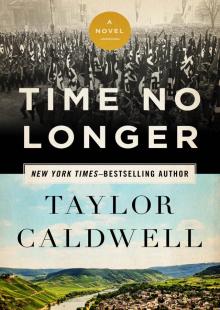 Time No Longer
Time No Longer I, Judas
I, Judas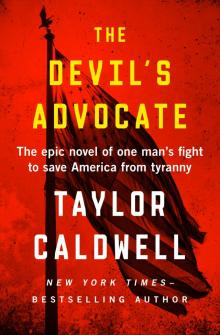 The Devil's Advocate
The Devil's Advocate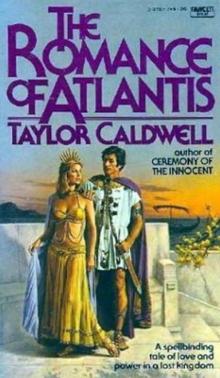 The Romance of Atlantis
The Romance of Atlantis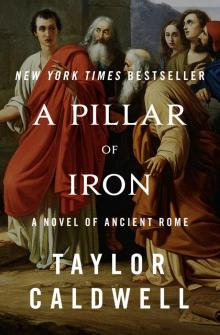 A Pillar of Iron
A Pillar of Iron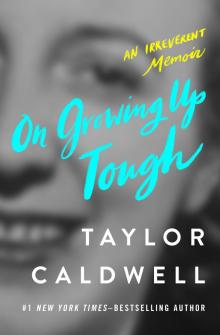 On Growing Up Tough
On Growing Up Tough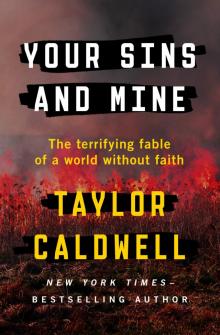 Your Sins and Mine
Your Sins and Mine